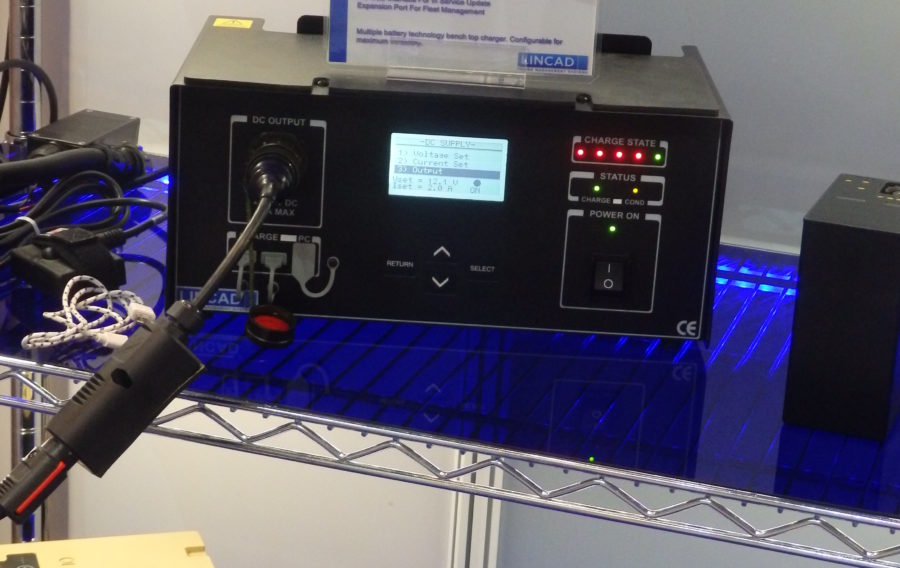
Surrey-based Lincad has become a world leader in bespoke power management solutions, designing and manufacturing specialist batteries, chargers and power management systems for military and other specialist applications.
Ahead of the company’s participation in DVD 2016, Lincad Joint Managing Director Peter Slade shared its defence supplier success tips with MOD DCB features editor Julie Shennan.
After 30 years developing specialist power management solutions, Lincad has gained a strong foothold in the defence marketplace, with customers including BAE Systems, Northrop Grumman, Leonardo, Thales, the UK Ministry of Defence (MOD) and other international Armed Forces.
The MOD is in fact Lincad’s biggest customer. Lincad Joint Managing Director Peter Slade explained that the connection was first secured by the identification of more cost-efficient solutions to defence procurement problems.
Mr Slade said: “Lincad’s founder and chairman, Brian Soden, was already working in the battery industry when he saw the opportunity to provide better value for money to the UK MOD. Brian saw inefficiencies within the system and used his expertise to set up Lincad and provide the MOD with a better service than they were receiving.”
Cost efficiencies – Mr Slade noted – continue to be a key concern of defence buyers.
Value for money is incredibly important to the MOD; like all other public sector organisations it has faced cutbacks, so every penny counts for MOD civil servants and likewise for the taxpayer who wants reassurance that money is not being wasted.”
Whilst value for money is important to defence buyers, Mr Slade stressed that suppliers must balance this with meeting the needs of the end user. “Lincad obviously ensures that its products are of high quality and that the service it provides is the best it can be. We never lose sight of the soldier in the field. Lincad has established a good relationship and reputation with the MOD over the last 30 years and continually seeks to improve its products for the benefit of the end user.”
 Feedback from end users often requires Lincad to upgrade its technology to provide improvements in performance or functionality.
Feedback from end users often requires Lincad to upgrade its technology to provide improvements in performance or functionality.
Mr Slade commented: “Many of our batteries power man-portable equipment carried by soldiers on operations, so there is always a drive for reduced weight to reduce the soldier burden. Lincad’s team of expert engineers keep abreast of the latest developments in cell technology and electronic design in order to integrate these into Lincad’s product range.
“For example, Lincad’s latest LIPS battery offers the end-user approximately three times as much capacity as the original battery in the same form, fit and function. So the same mission duration can now be achieved with a third of the total number of batteries.”
Technological advancement is just one way in which defence requirements have evolved in recent years, but there are also other demands such as the tightening of international regulations.
Mr Slade noted: “There have been recent changes in the regulations around the transport of lithium-ion batteries by air. The new IATA regulations, which came into force in April 2016, state that lithium-ion batteries can now only be flown at 30% state of charge and on cargo aircraft only.
“Lincad’s new Caravel Mk2 charger has been designed with a transport mode functionality, to allow lithium-ion batteries from any manufacturer to be set to a state of charge below the 30% limit so that they are ready to fly.”
As this example shows, procurement regulations are an essential part of a safe defence supply chain. Suppliers must ensure that they are compliant both within their own organisation and through their sub-contractors. Mr Slade explained: “Lincad is ISO 9001 accredited and it expects that from suppliers it works with. We carry out due diligence to ensure that suppliers can be relied upon to deliver and to ensure that they operate with the level of professionalism expected.”
 Due diligence, like much of defence procurement, is time-consuming, so suppliers must budget extra time for it into their route to market. As Mr Slade advised:
Due diligence, like much of defence procurement, is time-consuming, so suppliers must budget extra time for it into their route to market. As Mr Slade advised:
Defence contracts require patience; they can take a long time to come to fruition.”
This is, however, not always the case. Mr Slade noted that sometimes MOD contracts can be fast-paced and suppliers must go the extra mile to meet deadlines.
He concluded: “There have been times when Lincad has had to work to incredibly tight deadlines, for instance to meet Urgent Operational Requirements (UORs). We are lucky to have staff who will go above and beyond their remit to deliver on these.
“Lincad recognises that its products are a vital part of soldiers’ kit and never forgets the importance of delivering on or before schedule.”
If you would like to join our community and read more articles like this then please click here
BAE Systems chargers defence contracts Leonardo Lincad Lincad Joint Managing Director Peter Slade military MOD Northrop Grumman power power management systems procurement specialist batteries Thales UK Ministry of Defence








